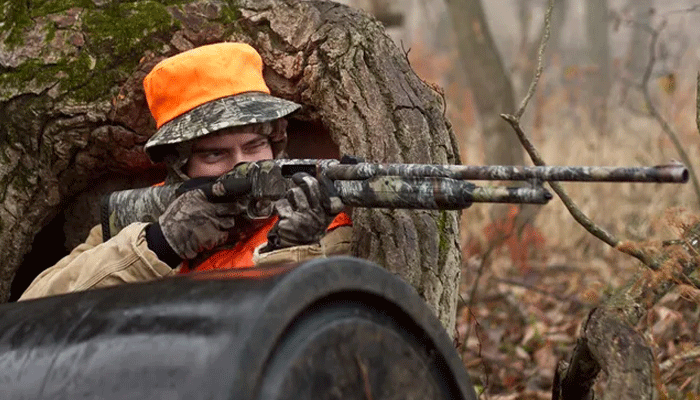
Proper equipment can mean the difference between life and death in a CBRN situation. Unfortunately, many people who buy military gas masks at surplus stores or gun shows end up with gear that doesn’t work correctly.
Besides having the right fit and selecting the correct filter for your hazard, you must regularly inspect your mask and its components. Those inspections should be done using the Air Force Manual 10-100 procedures.
Inspecting
The first step in handling a gas mask is to inspect it regularly. This involves disassembling the mask and looking over each component. The space where you do this should be spacious and well-lit to make it easier to see the individual parts. If you notice any cracks, tears, or abrasions in the plastic components of the mask or any signs that it is leaking air, this indicates that it should be discarded.
Another part to check is the face seal. This seals against your face to block out hazardous fumes or particulates, so it needs to be intact and firm. You can test the seal by gently pulling on it. If it becomes loose, air can leak out of the mask and put you at risk in a dangerous situation. Finally, check the airflow valves to ensure they are in working order and have not become weakened or broken over time.
Once the mask is inspected, it should be cleaned using the proper chemicals for your specific mask. Harsh chemical cleaners can quickly break down rubber and elastic, so you must use the chemicals the manufacturer recommends for your mask. It is also essential to regularly clean your mask to remove sweat and natural oils that can build up over time. The manufacturer may provide cleaning solutions or kits, and you should follow the instructions to keep your mask in good condition.
In addition to cleaning and inspection, military gas masks must be stored properly to protect against corrosion and other problems. They should be kept in a cool and dry place, and if you have a MIRA Safety Coupon Code, you can use it to save on accessories such as storage cases that help protect your gas mask when it is not in use. Also, avoid touching any metal parts of the mask to prevent corrosion and ensure its long-term functionality.
Suppose you have never worn a military gas mask before. In that case, you should practice getting it on and off so that you will be familiar with the process when the time comes for your unit to conduct an operational readiness inspection (ORI). In addition, this will allow you to get comfortable with how the mask fits on your face and how it works.
Cleaning
As important as having a gas mask, knowing how to properly take care of it is equally critical. A respirator is the thin line between you and hazardous chemical agents or particulates that could irritate your respiratory system, make you sick, or even kill you. That’s why proper inspection and cleaning is so important.
When cleaning your military gas mask, the most effective approach is to clean it daily. Sweat and natural oils build up over time, making it difficult for your mask to function effectively. To ensure your mask is ready, regularly clean it using a non-aggressive detergent solution or disinfectant wipes (based on the manufacturer’s instructions). Be sure to pay special attention to the rubber lining and head straps. Over time, they may become porous and trap dangerous chemicals or gases.
In addition to daily cleaning, you should thoroughly wash your gas mask at least once a week. When you do, remove the filters, the pressure demand valve assemblies, and the supply and demand hoses. Rinse each piece with warm water to remove any soap residue. Then, soak them in 4 cups of water and 1 tablespoon of bleach for 2 minutes. Once the components are soaked, rinse them again to remove any bleach solution and let them dry completely.
It would be best to place your gas mask in a dedicated case or cabinet for long-term storage. This will protect it from extreme temperatures indicated in the manufacturer’s instructions, shocks that can deform the plastics, and any pollutants that can negatively affect its performance.
When storing your military gas mask, you should never throw it away unless it is old or overexposed. Overexposed masks should be disposed of by the local authorities rules for particular waste disposal. Similarly, contaminated filters should be treated as hazardous waste and disposed of according to the same procedure.
Storing
Having the right equipment is one thing, but knowing how to properly care for your gear is essential. That means knowing how to inspect, clean, and store your gas mask. Keeping it in the best possible condition will help ensure it’s ready to go when needed.
Many people are unaware that the rubber used in military gas masks can deteriorate over time. This can affect its effectiveness and cause it to leak. This is a problem that can be easily avoided with proper maintenance.
If you want your gas mask to be ready during a CBRN incident, keeping it properly stored is essential. You should always store it in a cool, dry place and avoid extreme temperatures. For example, storing a gas mask in the heat of summer can drastically reduce its lifespan. This can also lead to other problems, such as deforming the mask’s shape.
Another aspect of storing your gas mask is choosing the correct filter. A wide variety of filters are available, and each protects against different hazards. If you have any Accessories Discount Codes, you can use them to save on filters and other accessories. Choosing the right filter is crucial because selecting the wrong one can render your entire mask useless. It’s essential to carefully consider all your options before buying a filter.
You should also be aware that some questionable surplus masks and filters are out there. Some are sold cheaply but may not offer the protection you need in an emergency. For this reason, it’s a good idea to only buy gear backed by the government or a reputable manufacturer.
It would be best if you also took the time to learn how to properly disassemble and reassemble your mask. Practice this so you can do it quickly and easily if needed. This will help you ensure that you can remove and replace filters quickly if necessary and will also allow you to wash the mask more thoroughly. This is especially important since a dirty mask can become contaminated with toxins much faster than a clean one can.
Repairing
The military gas mask is a piece of equipment that must be regularly inspected to ensure it functions as intended. Failure to do so can result in severe injury or even death. Fortunately, the inspection process for these pieces of equipment is relatively straightforward. It involves examining the helmet mask for integrity, checking its height to ensure it is properly fitted, and ensuring that the lenses of the spectacle assembly are not cracked or shattered. In addition, the front part of the mask must be free from dents, rust, or punctures in the filter-absorbing box. Lastly, the valves should be in good condition free of warping and clogging.
As the world continually faces various CBRN threats, keeping military gas masks up-to-date is essential. Many current models can filter out more than 99% of virus-sized particles. This capability makes using military masks ideal for performing tracheotomies during a pandemic. Despite this, many people still need to properly care for their masks.
The market for military gas masks is anticipated to grow due to the continuous research and development of advanced materials and technologies. Newer types of masks are being developed that offer improved visibility and user ergonomics. They also enhance situational awareness in terms of visual and audio.
However, this increased demand for better-performing military gas masks is expected to cause several players in the industry to compete with each other. This may result in higher price tags for the latest models.
Moreover, the availability of cheap, surplus military gas masks is threatening the demand for the latest models. These masks are sold at bargain prices but are often outdated and do not provide protection. They are usually stored for years, well beyond their recommended shelf life. This is a significant problem because the materials degrade over time, making them less effective.
To avoid this, you should always follow the maintenance recommendations detailed in the manufacturer’s instructions. For example, it is important not to dismantle the filter cartridge and clean it by dipping it in water or using harsh cleaning agents. This could irreparably damage the filtration ability of the mask and make it ineffective against specific threats.
Conclusion
Proper maintenance of military gas masks is crucial for the safety and well-being of our armed forces. It ensures the masks function correctly and protects against deadly chemical agents. Regular inspections, cleaning, and replacement of damaged parts can prevent malfunctions and save lives in the event of a chemical attack. Let us consider the importance of maintaining this critical piece of equipment.








